Recent Blog Posts
How Does a Chicago Car Accident Affect Your Personal Injury Claim?
Car accidents in Chicago, Illinois, can significantly impact your personal injury claim. Understanding this impact is essential to protect your rights and secure the compensation you deserve.
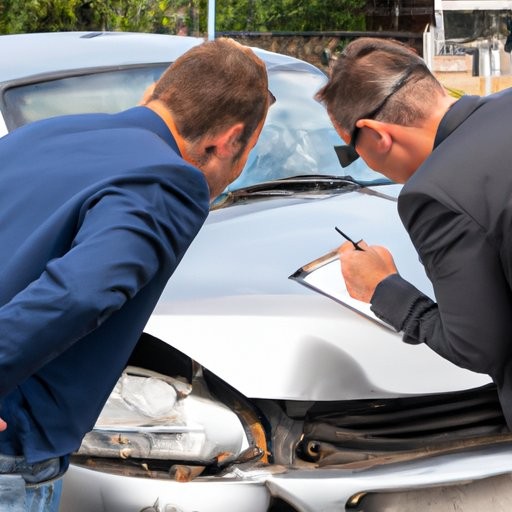
What Factors Influence Your Personal Injury Claim in Chicago?
Several factors can affect your personal injury claim after a car accident in Chicago. Determining fault is crucial, as Illinois uses a comparative negligence system. This means your compensation might be reduced by your share of fault in the accident.
How Your Chicago Car Accident Case is Affected by Major Injuries
Car accidents in Chicago, Illinois can drastically alter lives, especially when they result in major injuries. Understanding how these injuries affect your legal case is crucial for obtaining the compensation you deserve. Whether your accident occurred on the bustling streets of downtown Chicago or a quieter suburban road, the severity of your injuries significantly influences the outcome of your personal injury claim.
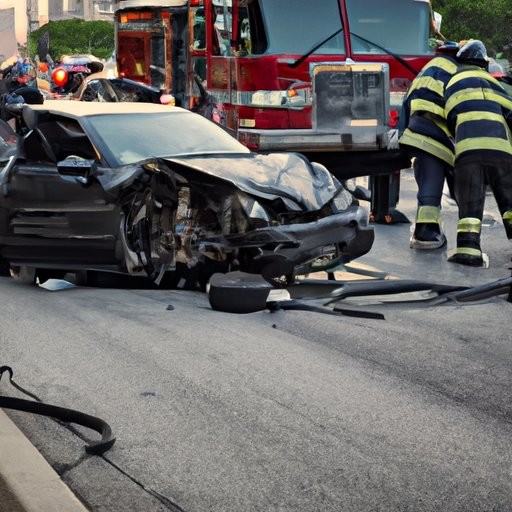
Why Do Major Injuries Matter in Car Accident Claims?
Major injuries from a car accident can profoundly impact your legal case. These injuries often necessitate extensive medical care, leading to substantial medical bills and prolonged recovery periods. In Chicago, as elsewhere, the severity of your injuries is pivotal in determining the compensation you might receive.
How Can You Navigate Traffic After an I-94 Crash in Chicago?
Dealing with a crash on Chicago's busy I-94 can be stressful and confusing. This highway is notorious for heavy traffic, making it essential to know what steps to take if you're involved in an accident. Understanding these steps can help ensure your safety and reduce further complications.

What Should You Do Immediately After an I-94 Crash?
Ensure Safety and Call for Help
Your top priority after a crash on I-94 is safety. If possible, move your vehicle to the shoulder to avoid further accidents and turn on your hazard lights to alert other drivers. If anyone is injured, call 911 immediately for medical assistance. Even if injuries aren't apparent, it's wise to have everyone checked by a medical professional.
How Can You Protect Your Rights After a Chicago Car Accident?
Car accidents in Chicago, Illinois, can be overwhelming, especially on busy roads like Lake Shore Drive and the Dan Ryan Expressway. Knowing how to protect your rights after an accident is crucial for ensuring a fair outcome. This guide will help you understand the necessary steps to take immediately following an accident.
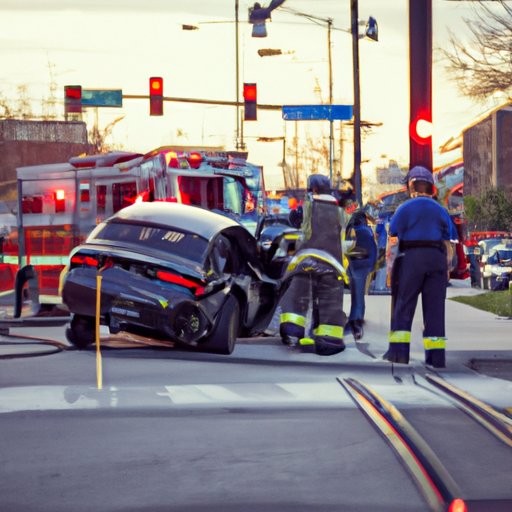
What Are the Immediate Steps to Take After an Accident?
Ensure Safety and Seek Medical Attention
Your first priority after a car accident should be the safety of everyone involved. If possible, move vehicles to a safe location to prevent further incidents. Check for injuries and call emergency services if needed. Even if injuries seem minor, obtaining medical attention is important because some injuries might not be obvious right away.
How to Stay Safe on I-90 After Schaumburg Crash
Driving on I-90, especially after a recent crash near Schaumburg, underscores the importance of heightened awareness and safety. This guide offers practical advice to help you navigate this busy highway safely, minimizing risks and enhancing your driving experience. As of May 2025, Illinois law continues to enforce strict traffic regulations to ensure driver safety.
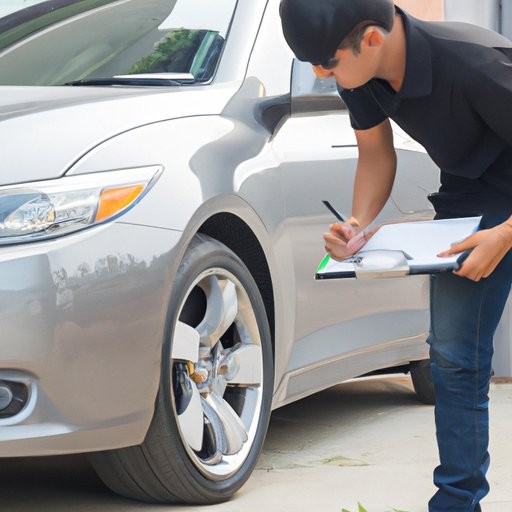
What Are the Risks of Driving on I-90?
I-90, or the Jane Addams Memorial Tollway, is a major route in Illinois, bustling with heavy traffic. The combination of high traffic volumes and unpredictable weather conditions increases the likelihood of accidents. Understanding these risks is essential for frequent travelers on this highway.
How to Stay Safe in Chicago's Flash Freeze Snowstorm
Flash freeze snowstorms pose a significant threat to residents of Hoffman Estates, Illinois and the greater Chicago area. These sudden weather events can create treacherous road conditions, cause power outages, and increase health risks. Being prepared and knowing how to respond is crucial for staying safe during these extreme weather conditions.
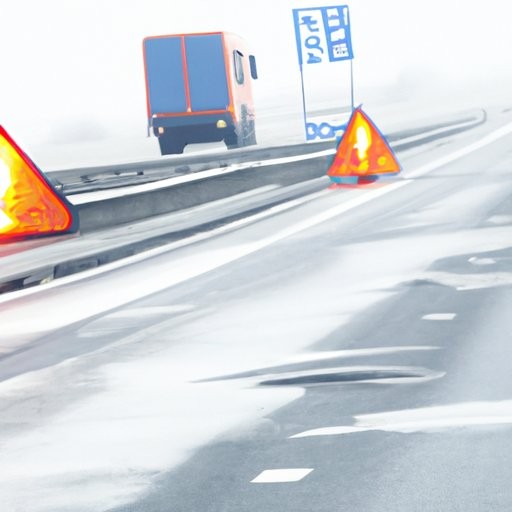
What Exactly Is a Flash Freeze Snowstorm?
A flash freeze snowstorm occurs when temperatures drop rapidly, causing wet surfaces to freeze almost immediately. This often accompanies heavy snowfall and strong winds, creating hazardous conditions. The swift transition from rain to freezing temperatures can lead to ice accumulation on roads, sidewalks, and power lines, increasing the risk of accidents and outages.
Alcohol-Impaired Driving in Illinois: Understanding the Risks & Statistics
Alcohol-impaired driving poses a significant threat in Chicago, Illinois, and across the United States. Despite stringent laws and awareness campaigns, it continues to jeopardize road safety. Understanding the risks and statistics is essential for prevention and legal accountability.
What Are the Risks of Alcohol-Impaired Driving?
How Does Alcohol Affect Driving Abilities?
Alcohol affects the central nervous system, impairing driving skills by slowing reaction times, impairing judgment, and reducing motor coordination. Even small amounts of alcohol can compromise a driver's ability to operate a vehicle safely. The National Highway Traffic Safety Administration (NHTSA) notes that a blood alcohol concentration (BAC) of 0.08 percent significantly increases crash risks (NHTSA, 2024).
Multi-Car Chicago Crash on Dan Ryan Expressway Injures Several
The Dan Ryan Expressway in Chicago, Illinois, recently experienced a significant multi-car collision, leading to several injuries. This incident highlights the complexities of determining liability and securing compensation for those involved. For injury victims, understanding the legal framework surrounding multi-vehicle accidents is crucial.
How Is Liability Determined in Multi-Car Collisions?
Determining liability in a multi-car accident can be complex. Unlike two-vehicle collisions, where fault might be clearer, multi-car accidents involve numerous factors and potential points of failure. Each driver's actions are examined to establish responsibility for the crash.
Often, liability in multi-car collisions is shared among several parties. The principle of comparative negligence frequently applies, assigning a percentage of fault to each party. For instance, if one driver was speeding and another was distracted, both might share responsibility. Illinois follows a modified comparative negligence rule, allowing a party to recover damages only if they are less than 51% at fault. As of May 2025, Illinois law still adheres to this rule.
How to Handle a Total Loss Auto Claim with Your Insurance in Illinois
Car accidents in Chicago, Illinois can be overwhelming, especially when your vehicle is declared a total loss. Understanding how to manage a total loss auto claim with your insurance company is crucial for securing the compensation you deserve. This article guides you through the process and highlights your rights and responsibilities under Illinois law.
What Constitutes a Total Loss in Illinois?
In Illinois, a vehicle is considered a total loss when repair costs exceed a specific percentage of the vehicle's actual cash value (ACV) before the accident. This percentage is typically set by insurance companies, often ranging from 70% to 80%. The ACV is determined by the vehicle's age, condition, mileage, and market value.
When your vehicle is declared a total loss, the insurance company will offer a settlement based on the ACV. This amount may not cover the full cost of replacing your vehicle, especially if your auto loan balance exceeds the vehicle's ACV. Gap insurance can help cover the difference between the ACV and the remaining loan balance.
I-294 Pileup: Lessons from the 45-Vehicle Crash and Traffic Safety Tips
The recent I-294 pileup in Chicago, Illinois, involving 45 vehicles, underscores the urgent need for heightened traffic safety awareness. This incident highlights how quickly road conditions can become perilous and the importance of proactive safety measures. In this article, we delve into the causes of the crash and provide actionable tips to help prevent similar events.
What Caused the I-294 Pileup?
The I-294 pileup was a complex event with multiple contributing factors. Weather conditions, driver behavior, and road design all played significant roles. Understanding these elements can help us mitigate risks in the future.
How Did Weather Conditions Contribute?
Adverse weather, such as heavy fog or icy roads, can significantly increase the risk of pileups. In the I-294 incident, poor visibility and slick surfaces were major contributors. Drivers should adjust their speed and maintain a safe distance from other vehicles during inclement weather to reduce accident risks.


